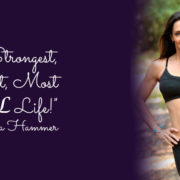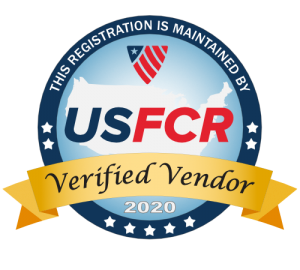Interview with Colonel Pamela Hoyt, PhD
Ever wondered if you’ve really got what it takes to do everything and anything you might want to do with your life?
Then you need to listen to this interview with Colonel Pamela Hoyt. She joined the military at a time where few women did, achieved a 30 year career there, scored a PhD, is deeply involved with helping other veterans and has a list of jaw-dropping professional achievements.
But as she’ll tell you, she didn’t get there alone. And there were principles she learned along the way that helped her get where she is today.
Listen now, or read the transcript below to get inspired for your own journey.
Andrea: My next fabulous guest is Pamela Hoyt. She’s a retired Colonel from the United States Army and she’s had a distinguished 30 year military career. Some of her highlights include 18th Military Police Brigade Germany, Company Command at Ft. McClellan, Alabama, Deputy Provost-Marshal at Ft. Stewart, GA, Assistant Professor in the Department of Systems Engineering at West Point, multiple positions at the Pentagon and culminating as a special operations command at McDill Air Force Base.
In addition, Pam has served in multiple combat and hostile environments in Kuwait and Afghanistan. Her highest military decorations include the Defense Superior Service Medal, the Legion of Merit, and the Bronze Star.
She volunteers to support wounded warriors through various activities and charitable benefits, is married to a former naval officer, Bruce Hoyt, and has three wonderful sons, all currently serving today in the military as well. That’s a really fabulously unbelievable distinguished career, and I am in awe. Tell me how you got started? What made you decide to join the Army?
Pam: Andrea, it’s a pleasure to be on your show.
Andrea: Yes, thank you so much.
Pam: It’s interesting. You know, back when we were younger joining the military probably wasn’t the first thought in anybody’s mind. I think my parents would definitely say I was born independent in mind and action. And so I think I was destined to be in the military. I joined soon after I turned 18. I didn’t tell my parents. In the Army Reserves, to be military police.
And so, I went to basic and advanced individual training, and was actually part of the first group after the draft had stopped and we were a complete, all-volunteer force, that they did integrated training with men and women for basic and advanced individual training. So I got the privilege of being a trailblazer in that area for the integration.
I’ve never looked back on any disappointments. I was very glad that I did join. I was always a very good runner, basic training and military training wasn’t hard for me. It was challenging and an adventure and something I just loved doing.
Andrea: You’re one of the leanest, strongest, kick-ass women I’ve ever met. I’m sure this was such a wonderful opportunity for you to just jump right in and go live your dreams. Tell us some of your experiences during your career. Thirty years, you must have seen, done, and experienced so much, especially as a woman in the military. I want you to tell me what your experiences were, and what it’s like to be a woman in the Army.
Pam: It’s interesting. I would say in the 30 years, even longer than that when I first went into the reserves in 1980 and it even changed even more drastically after 9/11. But what I got to see, and really be part of it, was to bring down a lot of barriers in the military. And change people’s preconceived notions about women.
A lot of leaders in the military at that time, in my early career, were Vietnam vets, Korean war vets, and so they hadn’t grown up with an integrated army, with men and women working side-by-side. But you didn’t walk, you got to ride, which is what we always said. We were the intelligent infantry. To always be out there in the field, working with the infantry, the armored units in Germany, and leading them in preparation for if the Russians ever came across the border. It was interesting, my first job at 5th Core Headquarters, after I soon arrived my new boss was Gen. Colin Powell.
Andrea: You can’t get any bigger than General Colin Powell. My goodness. What an experience that must have been, to work with him. Tell us about that.
Pam: That was one of the things that I really was very, very lucky and blessed to have had for my first senior leader, such an officer.
Andrea: Ya think? Oh my god. Of course. Go ahead. I’m blown away. What an awesome…it’s not like you get to meet him walking down the street, getting your newspaper. So…to be your mentor…that must have been amazing.
Pam: It was great. I would see him weekly, if not more often, depending on who the visitors were trying to entice him to DC. We were his palace guards, because we protected the headquarters and him in Frankfurt. So when I’d go in to brief him, on a couple of occasions he’d ask what my goals and aspirations were. And originally, I told my husband I was only planning on doing 3 years in the Army.
And that definitely changed.
Andrea: Well, add a zero to that. After you meet Colin Powell and he’s asking you what your goals and aspirations are, how can you say, “Well I’m going to be done next week.” You can’t say that!
Pam: And that’s when I realized how much I really loved being in the military. And leading soldiers, and the responsibility. And working for someone like General Powell, who gives you the leeway to grow and learn and develop as an officer.
I remember him asking me what I wanted to do, and him and I discussing it.
And he says, “Well, be careful what you wish for. Because the thing is, if you are successful and focused, you have a lot of opportunities. And you really need to think in advance, before those things open up, what do you really want, and what you are trying to achieve.”
And so that was good advice from him, to be more aware of what were my aspirations and how I wanted to develop those. Because he knew if I did that, I would get whatever I asked for. And that’s why he always gave a little bit of a warning, to that.
And his son was in at the same time I was. He was also a Lieutenant while we were in Germany. So, he had a fondness for us young officers and helping us grow and develop into being the best that we could be. That was a good way to start my career.
Andrea: As a woman in the military, what are the opportunities now? What was, how did you experience it as a young woman growing up, getting married, having a family, being in command, and then what opportunities are there now?
Pam: My husband is wonderful. He left IBM after we got married to follow my career. He would find jobs teaching. He was the one who really allowed me to go for my full potential and empowered me to advance my career. We have 3 sons. The youngest are twins, which is no easy feat with three boys.
Andrea: Right. I have two of my own, so I know. Three is an extra bundle of joy. So how did you manage all that and accelerate in your career to Colonel?
Pam: A lot of it was the help of family and friends. And think sometimes as women we always think we can do it all. And you can, but you have to have family, and really it was the support. Whether we were at Ft. Stewart, GA with 3rd Infantry Division, and in that 2-year time I was deployed a year of that whole time with them, to two different deserts. Went to Egypt, then came home for 2 days and went to Kuwait to get ready to invade Iraq in ’98.
And so it took our neighbors, our church. The military community. A lot of us don’t live on bases. My husband having to take care of the kids and deal with all the things, you know, that a parent has to deal with, right, as a single parent, right, while the other one is gone. And not knowing when they’re coming back. And I knew that they were safe. And I could pursue my career as an officer, and take the opportunities I was given.
The good thing was the Army was wonderful and paid for me to pursue a PhD, which allowed us to change our careers when I was a Major, a Senior Major. So, and that way it made it easier, as opposed to deploying all the time as an MP, for military police.
But the opportunities now are absolutely incredible. I’ve told you before: since 9/11, everything has opened up, really. And there is tremendous change afoot now for men and women to go into the service. Especially for women, now.
Andrea: Explain those changes now. In all aspect of the military: the Army, the Navy, the Marines, what are the changes that are allowing women to have the same kind of career as you, now? You’re a trailblazer. You’ve really opened up the pathway for women to advance in a military career that mostly men do. What is it, only like 7% of women make it to the ranks you’ve made it? So tell us about that, for young women today deciding to join in the military forces, what their opportunities are.
Pamela: Oh, the opportunities are…before me, and women I worked through the ranks since my entire time, we’ve helped open up the gateway by showing them we can do the jobs, we’re very competent, and can lead just as successfully as our male counterparts. There should be no comparing people because of gender.
Right now the army is comprised of less than 16% females. And same thing for making Colonel, or O6, is about 16% female. And as you said, only 7% of the general officers are female. Things are changing because since 9/11, in the combat in Iraq and Afghanistan, women have really shown they are just as capable of operating in a combat environment as their male counterparts.
The new war, warfare does not have a dividing line that says, “There’s no warfare on this part of the combat.” Combat is everywhere anybody is deployed, and they have to be able to operate in that environment at the highest level.
And so now women are getting opportunities. We’ve had women as combat aviators, right now they’re getting ready, I believe, to open up most of the combat arms for all females who qualify. We just had three females successfully complete Ranger school. Which is really a test of perseverance.
And people don’t realize, really realize, how strong women are. We have endurance. We may not have absolute strength, but we definitely have endurance and the gumption to finish a task. So those are the things that are coming forward, and I think is going to be even greater in the next 5 years for what women get to do.
And achieving higher ranks as general officers.
Andrea: So, what would you say has helped you be the most successful in your 30-year career. And how can you empower other women with your knowledge?
Pam: Well, one thing, I’ve always believed not to take, “no” for an answer. I think you always have to look to see, even if someone says no, I’ve never seen that as final. You have to look to see, “Okay, how can I get this still accomplished.”
And the other thing too is, I always believe you have to lead by example. Your soldiers, or anybody you are leading, you have to do that. You can’t just talk it. You have to display it.
The other thing is mentoring. I’ve had some terrific mentors in my career. Chris Frell, she was one of my early mentors as a Captain in the army. She was army. She came in the army older. She was just tremendous. She was so fit. She was intelligent, articulate, and didn’t take no for an answer either. She said, “There isn’t anything you can’t do, or help make change so you can’t do it.”
You have to…if you’ve been mentored before, you know the value of it. So you have to pass that on, bring it forward, and help other women achieve their goals and get to their full potential.
And the other thing is writing down your goals.Write down your near-term, short term, and long-term goals, because you are more likely to achieve those when you write them down.
Andrea: Yes. They become more concrete when you have them on paper. I have been shown that by my mentors as well. That’s an excellent tool, because if you don’t know where you’re going, you’ll never get there. That’s a wonderful thing to share with our listeners too, and that’s probably one of the best ways that helped you stay on target towards achieving your goals.
Pam: Oh, it is, absolutely. And you refine them all the time, because you finish things. It doesn’t mean you’re done. Now you gotta set your new goals. The other thing is, just like you, you don’t wait for someone to tell you to do something. You take charge. You do it. You see something that needs to be done, and you do it. And not only for people watching you saying, “I can do that too,” but also for yourself, because now you’re in control. You’re not waiting for people to tell you to do something.
And that’s one of the things I’ve always done throughout my career. Is look for problems, and go after them.
Andrea: And that’s what’s made you so successful. So…as you transition from your 30 year military career to civilian life, I’m sure you can’t help to bring all those principles of leadership, determination, can-do attitude, and not taking no for an answer into your retired life, which I have to laugh at that term, retired. Because I know you, and sitting still is not who you are.
Share with us what you’re doing in your transition, and how that transition was for you, and what it is you’re doing. And what you’re using…I believe you have a PhD in mathematics, now. I think you’re into consulting with the defense industry in a lot of ways. So, share with us the other half of your journey now in civilian life. Talk to us about that.
Pam: A lot of people, and I know a lot of my male counterparts, they said it was really hard to transition from wearing the uniform to going civilian. And a lot of them compensated for that was growing facial hair. And I told them the one thing I would not do when I retired was grow any facial hair.
Andrea: That’s too funny.
Pam: But I think I had a very easy transition. It was actually enjoyable. I did not have regrets whatsoever, or look back. Because for the last 17 years I’ve been working in a consulting type fashion for senior leaders, and helping them make good decisions through data and analysis. And mathematical modeling, as we did in Afghanistan.
The thing for me was basically taking these tools, and my leadership skills, and communications, into the civilian sector, in which I’ve been primarily helping defense contracting companies go after various contracts.
And so, I’ve enjoyed it. And right now, my plate is kind of running over with all the other things I’m doing and volunteering in.
Andrea: Let’s talk about that because you’re such a can-do woman. And besides your private consulting career, you were telling me before about your work with the wounded warriors and the Blue Star Mothers. Let’s talk a little bit about your charitable benefits and your work with that group of people, and how that’s changing lives.
We’ve got 5-minutes left, so I really want to spend some time talking about how you’re really, really putting forth so much help to our veterans and the mothers of our children that serve. So go ahead and share that with us please.
Pam: I joined the Blue Mothers group, was enticed by the female doctor who did my last physical on my way out. She said, “You know, this is something you should probably consider.” She’s the president of the Blue Star Mothers.
But it was started in 1917 by Woodrow Wilson during the First World War to recognize the mothers who have sacrificed a lot through their children. It’s been recognized since then. And then in WWII, mothers would put a banner in their window with a blue star that would show they had family members that were off to war. The husbands, the sons. If there was a gold star in the window it meant they had lost a son to war.
And the Blue Star Mothers do a lot to help the Gold Star Mothers and support them for their wonderful contribution. A lot of them still give to the community, because they have given the ultimate sacrifice, their son or daughter, to combat. I had the honor to speak at the Gold Star Mother’s Luncheon, and the thing is I don’t think some of them realized how much their children had contributed to working in the military.
Since 9/11 the military has changed incredibly fast, and it has been a lot due to what their sons and daughters have gave to the military. That is why we are the finest military in the world. Because we have the…they’re smart, they’re articulate, they’re creative, and they have a can-do attitude. Those are the kinds of people who make the change.
And I told them we were grateful for their sacrifice and what their kids had done while they were in the service.
And the other thing we do is work with the Athena House, which is a shelter for women veterans, trying to help them get back on their feet in Tampa. We try to help them and give them the supplies and the substance and order to help them to move on to their next chapter of their lives.
Andrea: That’s just so amazing, that the Blue Star Mothers, the Wounded Warriors…we have 2 minutes left if you can touch on the Wounded Warriors project that you help promote the awareness of how they need us. Talk to us about Wounded Warriors for the last couple of minutes, because I’m going to have to wrap up the show, and I’m just so, you know, astounded at everything you’ve accomplished and done. It’s so empowering and inspiring for all of us women to hear your career to make us get up and go. What’s with the wounded warriors that has touched your heart?
Pam: I think the thing about the Wounded Warriors is they’re a humble group. They’re in your community. They’re not constantly, as always as obvious and easy to help the individuals who are out there. Because they blend into your community. The thing I like helping with, especially for getting funds raised, is the Fisher House.
Which helps families who have a service member in a military hospital to have a place to stay to have them recoup from their injuries. That is one of the greatest things if a family can be there to help their loved one improve their health and well-being, so much the better.
The other is the Wounded Warrior project. The VA needs volunteers. If you’re looking for something, look local. That is what I tell people. There are people in your community who need your assistance. You can look no further than the VA center and see if you can help. If you can’t give time, monetary time is always helpful. Or even donating your frequent flier miles to the Fisher House, so the families can travel to where their loved ones are being made better, through the medical system.
Andrea: That’s wonderful. That is so great. I wish we had more time to talk about all the rest of the things you do, but Pam thank you so much for coming on the show with all your knowledge, experience, and leadership. I know, just listening, I’ve been inspired, and that many of our listeners, and also young women, to be inspired to perhaps serve in the military, serve our country, and have the same opportunities for achievement and success in their lives as you’ve had. So I want to thank you so much for joining the show today and sharing all your experience and knowledge with us. I truly truly enjoyed having you, and I thank you for your service to our country, your heart and your passion, I can’t say enough, truly moved me, and I’m sure the rest of the listeners as well. Thanks once again.
Pam: Thank you for this wonderful opportunity. It was a real honor to talk to you today.






Leave a Reply
Want to join the discussion?Feel free to contribute!